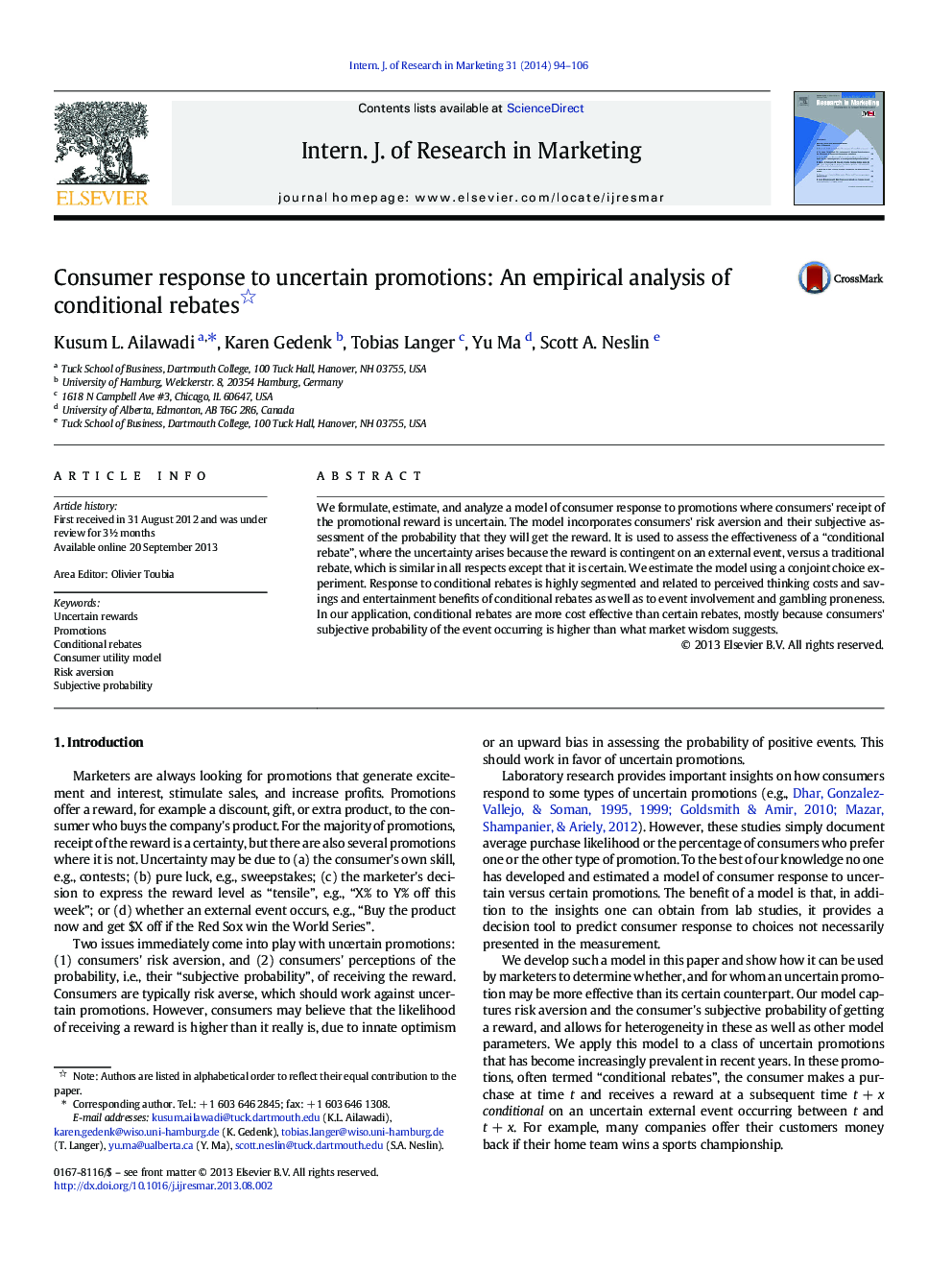| Article ID | Journal | Published Year | Pages | File Type |
|---|---|---|---|---|
| 880170 | International Journal of Research in Marketing | 2014 | 13 Pages |
•In conditional rebates, the reward hinges on an uncertain external event.•We compare conditional and certain rebates in a choice-based conjoint study.•Overall, conditional rebates are more effective, but response is highly segmented.•Segment membership is driven by perceived benefits and costs of CRs.•CRs are effective mainly because consumers over-estimate event probability.
We formulate, estimate, and analyze a model of consumer response to promotions where consumers' receipt of the promotional reward is uncertain. The model incorporates consumers' risk aversion and their subjective assessment of the probability that they will get the reward. It is used to assess the effectiveness of a “conditional rebate”, where the uncertainty arises because the reward is contingent on an external event, versus a traditional rebate, which is similar in all respects except that it is certain. We estimate the model using a conjoint choice experiment. Response to conditional rebates is highly segmented and related to perceived thinking costs and savings and entertainment benefits of conditional rebates as well as to event involvement and gambling proneness. In our application, conditional rebates are more cost effective than certain rebates, mostly because consumers' subjective probability of the event occurring is higher than what market wisdom suggests.
